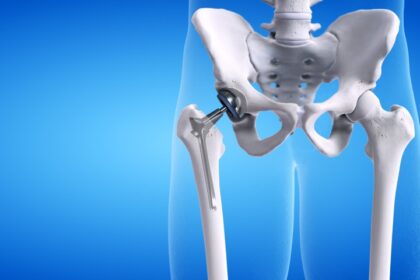Scheduling an appointment with an orthopedic surgeon can raise questions about what the visit will involve. Whether you’re experiencing shoulder pain or another musculoskeletal concern, understanding the typical consultation process helps you prepare for your appointment. Here is more information on what happens during an orthopedic surgeon consultation, from the initial assessment through potential next steps:
Discussing Symptoms and History
Whether your visit is for shoulder pain or another musculoskeletal issue, your orthopedic surgeon will begin by gathering comprehensive information about your medical background and current symptoms. This discussion covers your present complaint. It will likely include when symptoms started, what activities trigger discomfort, and any previous treatments you’ve tried.
The surgeon will ask about your medical history, including past injuries, surgeries, and current medications. Family history of orthopedic conditions may also come up during this conversation. For shoulder pain specifically, the surgeon will want to know about the location, intensity, and duration of your discomfort, as well as whether certain movements or positions make it worse. This information helps the surgeon understand the functional impact of your condition and tailor treatment recommendations to your lifestyle needs.
Understanding the Physical Exam
The physical examination forms a central part of your orthopedic consultation. Your surgeon will examine the affected area, looking for signs of swelling, bruising, deformity, or muscle atrophy. They will assess your range of motion, asking you to move the joint through various positions while observing any limitations or compensatory movements.
Strength testing evaluates the function of different muscle groups around the affected joint or area. The surgeon may apply resistance while you perform specific movements to gauge muscle strength and identify weakness patterns. Palpation involves feeling the area to locate tender spots, assess tissue texture, and identify anatomical landmarks.
Special orthopedic tests target specific conditions or structures. For shoulder pain, these might include tests that assess rotator cuff function, shoulder impingement, or joint stability. The surgeon will explain what they’re testing as they perform each maneuver.
Creating a Treatment Plan
Following the history and physical examination, your orthopedic surgeon will discuss their initial assessment and potential diagnostic steps. They may recommend imaging studies such as X-rays, MRI, or CT scans to gather more detailed information about your condition. Blood tests might be suggested if the surgeon suspects inflammatory conditions or infections. Additional specialized tests, like nerve conduction studies, might become necessary depending on your symptoms and examination findings.
The surgeon will explain their preliminary thoughts about your condition and outline potential treatment approaches. These might range from conservative management with physical therapy and medications to more advanced interventions. They will discuss the reasoning behind their recommendations and what each option involves.
Get Help With Shoulder Pain
Your orthopedic surgeon visit provides an opportunity to get professional evaluation and guidance for your musculoskeletal concerns. The combination of detailed history-taking, thorough physical examination, and appropriate diagnostic planning helps establish an accurate diagnosis and effective treatment plan. Understanding what to expect during this process allows you to participate actively in your care and make informed decisions about your treatment options.









